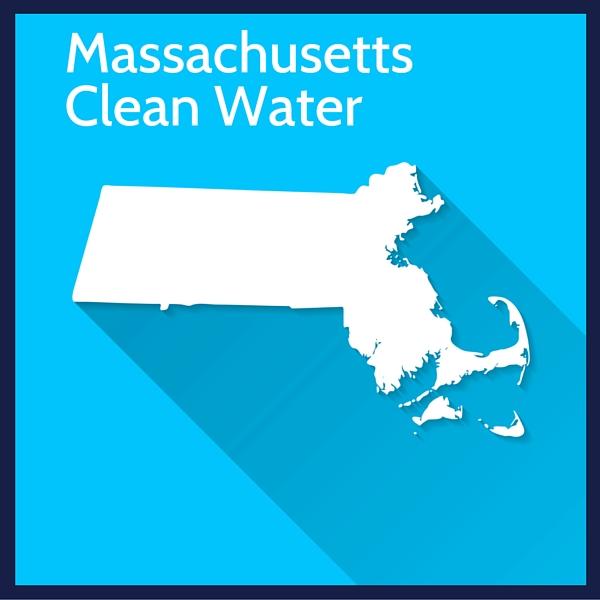Massachusetts has announced a comprehensive new initiative aimed at improving clean water standards and addressing the widespread contamination caused by PFAS, a group of harmful “forever chemicals.” The state’s ambitious cleanup plans focus on safeguarding public health and restoring water quality through enhanced regulation, targeted remediation efforts, and increased funding for affected communities.This move marks a significant step forward in Massachusetts’ ongoing commitment to environmental protection and public safety.
Table of Contents
- Massachusetts Unveils Comprehensive Strategy to Tackle PFAS Contamination
- Key Measures Target Drinking Water Safety and Environmental Restoration
- Collaborative Efforts with Local Communities and Industry Leaders
- Experts Recommend Increased Monitoring and Public Awareness Campaigns
- Wrapping Up
Massachusetts Unveils Comprehensive Strategy to Tackle PFAS Contamination
In a decisive move to safeguard public health and protect vital water resources, Massachusetts has introduced an ambitious plan aimed at addressing the pervasive issue of PFAS (per- and polyfluoroalkyl substances) contamination. This initiative involves enhanced monitoring protocols across water systems statewide, coupled with stricter regulatory limits on PFAS levels to ensure drinking water safety. The strategy also includes accelerated cleanup efforts at impacted sites and investments in cutting-edge technologies to remove these persistent chemicals effectively.
Key components of the plan focus on:
- Statewide water testing expansions to identify contamination hotspots early
- Funding for local communities to upgrade water treatment infrastructure
- Collaborative research partnerships to develop innovative remediation methods
- Public awareness campaigns to educate residents about PFAS risks and prevention
By implementing this comprehensive approach, Massachusetts aims to set a national benchmark in combating toxic chemical pollution and fostering resilient, clean water systems for generations to come.
Key Measures Target Drinking Water Safety and Environmental Restoration
Massachusetts is implementing a comprehensive suite of initiatives designed to safeguard public health by targeting contaminants in drinking water, focusing heavily on hazardous PFAS compounds. These strategies include enhanced monitoring systems,stricter water quality standards,and accelerated remediation efforts at identified contamination sites. The state is also prioritizing community engagement to raise awareness and ensure transparent dialog about ongoing cleanup activities.
Key measures include:
- Deployment of cutting-edge filtration and treatment technologies in municipal water systems
- Mandatory reporting and testing protocols for private wells and public water suppliers
- Funding allocation for environmental restoration projects aimed at rehabilitating polluted waterways and wetlands
- Collaboration with federal and local agencies to speed up PFAS removal and reduce future contamination risks
Collaborative Efforts with Local Communities and Industry Leaders
Massachusetts officials are joining forces with local governments and key industry leaders to tackle the complex challenge of PFAS contamination and water quality. Through regular stakeholder meetings and community forums, the initiative emphasizes transparency and active participation from those most affected by contaminated sites. These collaborations aim to foster innovative solutions and ensure that remediation efforts align with the unique needs of each community. Critical partners include environmental groups, water utility companies, and industrial sectors that have historically contributed to or been impacted by PFAS presence.
Key strategies being developed with these partners include:
- Sharing cutting-edge research and cleanup technologies to improve efficiency
- Coordinating funding sources for long-term sustainability
- Implementing educational outreach to raise public awareness on PFAS risks and prevention
- Creating tailored, community-specific action plans that prioritize vulnerable populations
This unified approach underscores Massachusetts’ commitment to not only remediate contaminated water sources but also to cultivate resilient and informed communities poised to safeguard their environment into the future.
Experts Recommend Increased Monitoring and Public Awareness Campaigns
Environmental specialists stress the urgent need to bolster water quality monitoring systems across Massachusetts to combat the pervasive threat of PFAS contamination. They argue that current efforts, while a step forward, require expansion to include more frequent sampling, real-time data analysis, and enhanced reporting transparency. Experts emphasize that a robust monitoring framework is essential to detect emerging hotspots timely and guide targeted remediation strategies effectively.
Alongside technical measures, public education campaigns have been identified as a crucial component in confronting PFAS pollution.Authorities and advocacy groups are urged to deploy comprehensive awareness initiatives that inform residents about the sources, health risks, and preventive actions related to PFAS exposure. Key recommendations for these programs include:
- Accessible educational materials tailored for diverse communities;
- Interactive workshops and community forums to foster engagement and dialogue;
- Partnerships with schools and local organizations to expand outreach impact;
- Regular updates on cleanup progress to build public trust and accountability.
These coordinated efforts aim to empower citizens with knowledge while ensuring that regulatory agencies maintain vigilant oversight.
Wrapping Up
Massachusetts’ new initiatives to tackle water contamination and PFAS pollution mark a significant step forward in protecting public health and the environment. As these cleanup plans are implemented, residents and officials alike will be closely monitoring their progress and impact. With a renewed focus on lasting water management and environmental responsibility, the Commonwealth underscores its commitment to ensuring safe, clean water for all its communities in the years to come.

